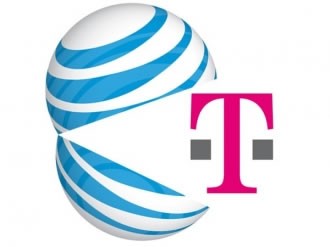The United States Department of Justice has filed a federal antitrust lawsuit to block AT&T's planned acquisition of T-Mobile. The DOJ claims that the $39 billion merger would lessen competition for wireless services across the country, resulting in higher prices, poorer quality service and fewer innovative products for all Americans.
The lawsuit was filed in US District Court for the District of Columbia today and cites several other reasons why the deal shouldn't be allowed to go through.
T-Mobile is one of four providers that make up more than 90 percent of mobile wireless connections in the US. An acquisition would eliminate T-Mobile, a company that offers aggressive pricing and introduced several "firsts" to the industry. T-Mobile was the first to introduce an Android-based handset, BlackBerry wireless email, national Wi-Fi hotspots, HSPA+ and several unlimited service plans.
In an emailed statement to CNET, AT&T senior executive vice president and general counsel Wayne Watts said he was shocked by the DOJ's decision.
"We are surprised and disappointed by today's action, particularly since we have met repeatedly with the Department of Justice and there was no indication from the DOJ that this action was being contemplated," Watts said. "At the end of the day, we believe facts will guide any final decision and the facts are clear. This merger will help solve our nation's spectrum exhaust situation and improve wireless service for millions; allow AT&T to expand 4G mobile broadband to another 55 million Americans, or 97 percent of the population; [and] result in billions of additional investment and tens of thousands of jobs, at a time when our nation needs them most."
In March, AT&T announced that they had entered into a definitive agreement to acquire T-Mobile USA from Deutsche Telekom in a cash-and-stock transaction currently valued at approximately $39 billion. The acquisition of T-Mobile, the fourth largest carrier in the US, would enable AT&T, currently the second largest US mobile service, to leapfrog the leader of the US market, Verizon Wireless.
Sprint Nextel CEO Dan Hesse has been one of the most outspoken critics of the merger, as the deal would put the company in last place among the top US mobile carriers.
